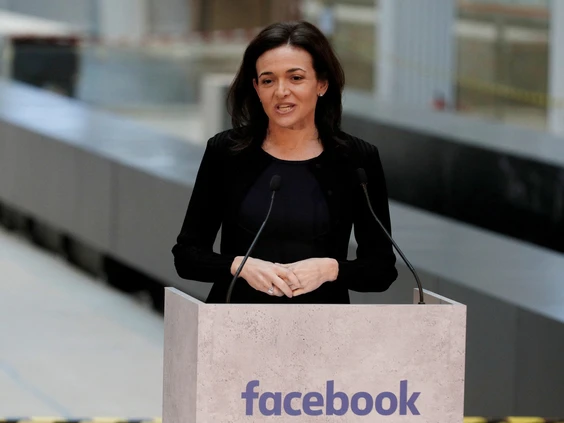Earlier this week, the City of Toronto fired 461 employees for not complying with its COVID-19 vaccination policy.
In a news release, the city stated that as of it’s deadline at midnight on Jan. 2, “approximately 98.6 percent of the active workforce reported being fully vaccinated.”
Those that didn’t comply, who do not have a pending appeal, were terminated.
What’s next for these employees?
The city implemented its vaccine mandate in August 2021, giving employees approximately five months to comply with its ‘jab or else’ rule.
The loss of 461 employees is no drop in the bucket. While the city says these employees were suspended and it’s not currently facing staffing issues, it’s hard to imagine that they can press on without doubling up responsibilities on other staff.
Added to that, in the face of the Omicron variant taking down vaccinated and unvaccinated workers alike, staffing pressures will be even further compounded.
The City of Toronto is not the only one taking a hard stance with respect to its vaccine mandate.
In a Reuters article this week entitled “No Jab, No Job,” Citigroup Inc. has also announced that its U.S. staff have until Jan. 14 to receive the COVID-19 vaccination, otherwise they will be placed on unpaid leave and fired at the end of the month, unless an exemption is granted. According to Reuters, Citigroup is the first major Wall Street institution to follow through with a policy requiring strict compliance.
Similarly, United Airlines CEO, Scott Kirby, defended his position to mandate COVID-19 vaccination for all United workers at a U.S. Senate Commerce hearing last month, saying, “We don’t compromise on safety.”
Of its 67,000 employees, Kirby confirmed approximately 200 employees, including 6 pilots, did not comply with United Airlines’ vaccine mandate and were fired. Non-compliant staff were fired despite Kirby admitting United had effectively grounded 100 regional airplanes because “there were not enough pilots to fly them.”
As politicians both provincially and federally wrangle lockdowns and the clarion call to impose harsher consequences for the unvaccinated, terminating unvaccinated employees during the Omicron wave will create gaps that can’t be filled.
In fact, federal Conservative Leader Erin O’Toole has called for “reasonable accommodations” for unvaccinated employees like truck drivers to “avoid service disruptions and exacerbating supply chain challenges.”
What should employers do if they face workflow challenges during the 4th wave?
Revisit testing requirements: many employer policies require unvaccinated employees to test for Covid-19 weekly. Given the province’s shut down on accessibility to tests, ensure your policy is still reasonable and possible for your employees to comply with.
Communicate: Reach out to employees who remain unvaccinated. Inquire if there are resources they need (like further information, or accommodation) to consider getting the jab or have a frank discussion on how they can still perform while meeting provincial restrictions.
Create separation packages: If your workforce is in limbo, create fair separation packages for unvaccinated employees. You can also consider temporary layoffs depending on the needs of your business and through clear communication with your staff.
On to this week’s questions:
Q. As an employer, I have been as flexible as possible, allowing employees to take time off from work if they are feeling symptoms, need to get tested or attend a doctor’s appointment during COVID-19. I find that there are a few employees (not many) that seem to take advantage of this ability. For example, if they are not online for a period of time, they later claim they had to take a COVID test or were at a medical appointment. What is my recourse if I want this kind of behaviour to stop?
A. For time off that is related to getting tested, getting vaccinated, or self-isolation, employers are not required to pay employees for this time away from work. If an employee has a concern about being docked pay for these types of leaves, employers can remind employees that they can access the Canadian Recovery Sick Leave benefit, which has been extended to May 7, 2022. This benefit is available to employees or self-employed individuals who are sick or need to self-isolate due to COVID-19, or if they have an underlying health condition that puts them at increased risk of getting COVID-19. Instruct employees to seek compensation for this time from the government directly.
Q. I have worked for 15 years for a storage company as a product manager. I received a letter offering me a demoted position or a termination. The termination package has only offered me a little more than five months pay. If I don’t accept that offer, do I have to accept the demoted position?
A. No. An employee is not expected to accept a demoted position in the face of a termination. You should seek legal advice with respect to the offer made to you to determine how large a severance package you may be entitled to. Fifteen-year employees can typically expect a separation package of twelve months or more, depending on whether they previously signed an employment agreement. It is possible that you may be able to negotiate a greater separation package without having to accept the demoted position at all.
Have a workplace issue? Maybe I can help! Email me at sunira@worklylaw.com and your question may be featured in a future column.
The content of this article is general information only and is not legal advice.




